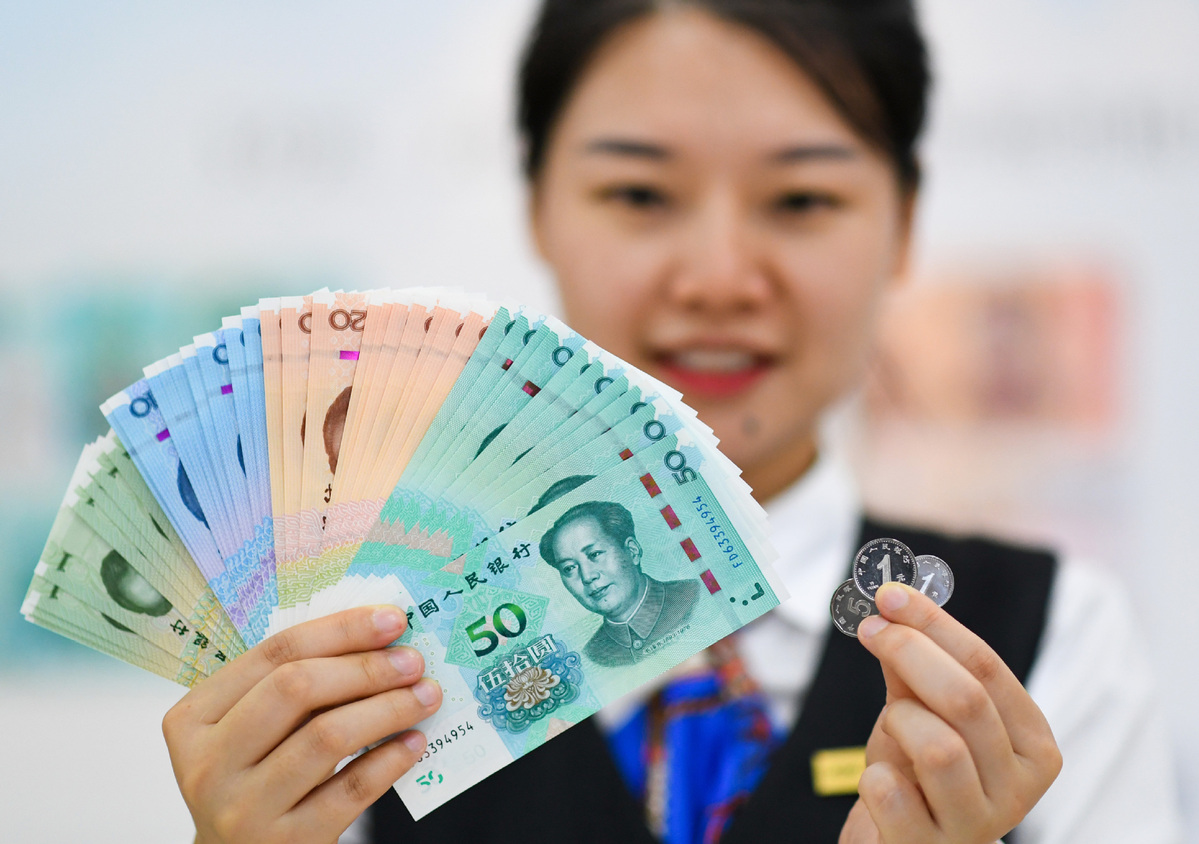Survey finds yuan's global rise unstoppable


The renminbi strengthened its position as a global settlement currency last year, with a growing number of overseas financial institutions willing to increase their Chinese currency denominated assets, a new survey found.
The survey, conducted by Bank of China Ltd, a large State-owned commercial lender, tracked responses from 3,286 business enterprises, with 76 percent being domestic companies. The remaining 24 percent were overseas businesses from 32 countries and regions. Apart from business enterprises, 117 overseas financial institutions also participated in the survey.
The increased cross-border use of the renminbi during the COVID-19 pandemic has demonstrated its strong dynamics, found the survey. Cross-border renminbi settlements exceeded 28 trillion yuan ($4.31 trillion) last year, up by 44 percent from a year earlier. The Chinese currency also found increased use for cross-border transactions last year.
About 79 percent of domestic and overseas business enterprises who participated in the survey, the highest percentage in the last five years, said they would consider using the yuan for cross-border transactions or were willing to increase the proportion of Chinese currency used in such transactions.
Overseas trading partners of domestic business enterprises were also more willing to accept the renminbi. About 31 percent of domestic respondents said last year their overseas trading partners fully accepted using renminbi as a settlement currency, up 4 percentage points from 2019.
At the same time, the role of the renminbi as a denominated currency improved steadily. More than 30 percent of the domestic respondents said the percentage of their renminbi-denominated trading contracts increased to some extent last year from a year earlier.
The survey also found that the level of the renminbi used in China's outbound direct investments rose significantly. Fifty-one percent of domestic businesses said the use of the renminbi in overseas direct investment accounted for no less than 20 percent of their total ODI last year, whereas only 38 percent of domestic business enterprises said so in 2019.
Due to the effects of COVID-19,central banks of major European and Western hemisphere countries adopted expansionary monetary policies, and the benchmark interest rates of these countries stayed low. China's interest rates, however, remained within a reasonable range, and greenback to yuan exchange rates remained stable in general.
These factors improved the attractiveness of renminbi denominated assets and strengthened its role as an investment currency. About 56 percent of overseas business enterprises participating in the survey said they plan to increase their renminbi-denominated assets.
"The internationalization of the renminbi has made great achievements, but it still has a long way to go. In the context of the international political environment in the future, China will accelerate the process of renminbi internationalization, which will be promoted by new policies, new financial products and the construction of new financial infrastructure," said Liu Ligang, managing director and chief China economist at Citigroup.
Liu said the renminbi will become the world's third-largest payment currency by 2030.



































